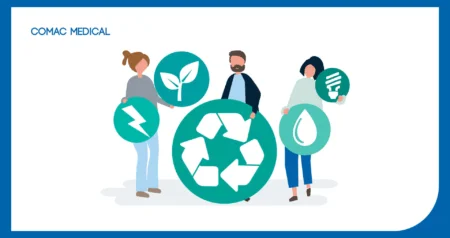Summer brings sunlit days, long evenings, and countless opportunities to enjoy the outdoors. Yet for the pharmaceutical and biotech community, the season also brings a unique set of health challenges. From heat stress to mosquito-borne infections, food-related illnesses, and seasonal allergies, summer’s climate and lifestyle shifts drive spikes in conditions that require scientific solutions.
In this article, we explore how summer illnesses intersect with clinical research and what that means for companies seeking to align their development strategies with seasonal medical needs.

1. Why Summer Health Risks Matter More Than We Think
As temperatures rise, human physiology adapts to create a perfect storm of risk. High ambient temperatures strain cardiovascular compensation and thermoregulation, raising the likelihood of heat exhaustion and even heatstroke. These conditions are accompanied by dehydration, which can exacerbate kidney stress and other complications. At the same time, the summer season marks intensified activity from insects, particularly mosquitoes and ticks. These vectors become more active, expanding disease transmission that requires preventative and therapeutic interventions. Outdoor dining also proliferates, elevating the risk of foodborne illness through undercooked meats or improperly stored food. Meanwhile, pollen counts surge, triggering allergic rhinitis and hay fever in many individuals.
Warming global temperatures intensify each of these trends. Climate change lengthens heat waves, extends to vector habitats, and alters pollen seasons; these factors increase the burden on public health systems. Understanding these environmental drivers is essential for designing clinical trials that align with fluctuations in illness prevalence. Therefore, research that addresses this seasonality is timely and critical.
2. Advancing Treatments for Summer-Linked Illnesses Through Clinical Trials
The most prominent seasonal conditions each present distinctive clinical challenge. Trials in these areas highlight strategic opportunities for companies to demonstrate medical value while addressing acute, high-incidence health issues.
2.1 Investigating Interventions for Heat-Induced Illness and Dehydration
The physiology of heat stress is well understood, but practical interventions are still emerging. Clinical research has begun measuring the impact of wearable sensors that monitor core temperature and hydration. These devices can alert medical personnel or users before symptoms escalate. Oral and intravenous rehydration therapies are under evaluation to refine treatments for dehydration, particularly in vulnerable populations such as the elderly or athletes. Meanwhile, prototype cooling vests seeded with phase-change materials are being explored in early-stage studies. While these remain in their infancy, the potential to prevent heatstroke through simple, point-of-access technology is significant.
2.2 Vaccine and Vector Control Trials Targeting Mosquito- and Tick-Borne Diseases
Vector‑borne pathogens see increased transmission during the summer months, making this a critical time for prevention and treatment. Dengue, for example, has been the focus of the live-attenuated TAK‑003 vaccine from Takeda. Clinical trials have demonstrated sustained efficacy in children and adolescents over three years, with protection against hospitalization at approximately 84% and overall protection at 62 %. This vaccine received prequalification from the World Health Organization on May 10, 2024, making it available for procurement in endemic regions.
Lyme disease, transmitted by ticks, has no approved vaccine yet. However, Pfizer and Valneva’s VLA15 candidate has completed recruitment of 9 437 participants in the Year 2023 Phase 3 VALOR trial. These efforts aim to confirm safety, immunogenicity, lot consistency, and efficacy by late 2025 in advance of anticipated submissions to regulatory agencies in 2026.
These vaccine efforts are notable as they provide clinical promise moreover these trials are aligned with seasonal peaks of disease incidence. Timing enrollment and dose administration just before or during vector activity enhances efficiency and data relevance under real-world conditions.
2.3 Diagnostic and Microbiome-Based Trials in Foodborne Illness Research
Summer’s outdoor gatherings trigger rises in Salmonella and E. coli cases. Point-of-care diagnostics represent a promising angle: emerging rapid tests aim to identify pathogens within minutes, guiding clinicians toward more accurate and timely treatment. Meanwhile, clinical trials of probiotics suggest that specific strains may reduce symptom severity and duration. Such interventions can reduce hospitalization rates and promote quicker recovery, making them especially valuable during summer population surges.
2.4 Immunotherapy and Biologics in Seasonal Allergy and Rhinitis Trials
Spring and early summer bring high pollen counts in many regions, which trigger sneezing, itchy eyes, and nasal congestion in millions. Clinical trials are underway to evaluate sublingual immunotherapy with standardized pollen extracts, allowing patients to administer treatment at home throughout the season. In parallel, anti-IgE biologics are already approved for asthma and are being tested for efficacy in severe seasonal allergic rhinitis. Trials are also exploring the nasal microbiome and immunologic biomarkers to better predict which patients will benefit most from which treatments. All are driven by a desire for precision management of seasonal allergies.

3. Designing Trials That Work with the Seasons, Not Against Them
Planning clinical trials around seasonal illness requires flexibility and foresight. Participant recruitment can be disrupted by holiday travel, summer camps, and school vacations. Sponsors must therefore plan recruitment windows carefully and consider remote or decentralized trial models that accommodate participant schedules.
Timing endpoints require precision to coincide with disease incidence. Hay fever trials must align with pollen peaks, and vector-borne disease trials must match mosquito or tick seasons. Real-time surveillance data and weather forecasting become essential tools for adaptive enrollment. Trials may also need to build in extensions or pause-and-resume mechanisms depending on outbreak timing.
Environmental unpredictability is another challenge. Heat waves, floods, or severe storms can disrupt trial sites or delay procedures. Sponsors must have contingency plans, such as alternate locations or remote data collection tools. Participant retention can also suffer when families prioritize travel or leisure. Strategies like remote site visits, digital check-ins, and holiday-friendly incentives can help maintain engagement.
4. Technologies Shaping the Next Generation of Seasonal Illness Trials
Emerging technologies are reshaping the landscape of seasonal illness prevention. mRNA vaccine platforms, proven during the COVID‑19 response, are being adapted for vector-borne diseases such as dengue and Zika. Should these trials succeed, they would demonstrate rapid response capabilities and modular platform value.
Digital epidemiology, including AI-based modeling of weather, mobility, and vector data, offers a way to forecast outbreak hotspots and optimize site selection. These predictive models can shorten trial timelines and improve case accrual in seasonal studies.
Wearable allergy trackers are entering early-stage studies. These devices log real-world symptom patterns, sneezing counts, eye rubbing, and nasal airflow, offering richer datasets than traditional patient diaries. These insights could transform outcome measures and patient stratification in allergy trials.
Finally, advances in biomarkers, such as nasal microbiome profiling and genetic predisposition analyses, may allow clinicians to predict which patients are likely to respond to specific immunotherapies or biologics, increasing trial success rates and treatment precision.

5. Why Seasonal Health Research Is a Strategic Priority for the Future
Seasonal illnesses are far more than transient inconveniences. They represent substantial burdens on healthcare systems, lost productivity, and disrupted lives. Effective clinical interventions are urgently needed each summer, and the insights gained from these trials inform strategies year after year. By aligning clinical research with environmental and seasonal trends, sponsors can generate more timely and relevant data, improving both trial outcomes and public health impact.
For pharma and biotech companies, supporting seasonal illness research signals scientific leadership, social responsibility, and readiness for climate-driven health shifts. Whether through vaccines, diagnostics, or therapeutics, focusing on summer illnesses offers both clinical relevance and strategic differentiation.



